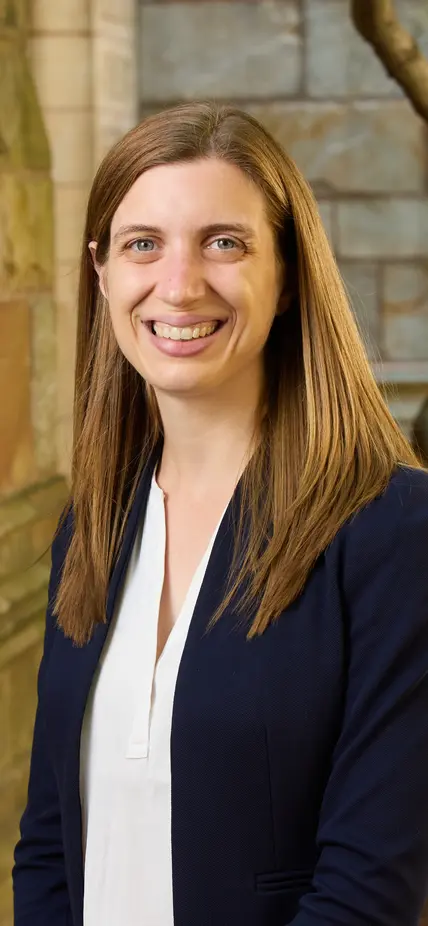Washington, D.C.— Self-described “Earth historian” Jennifer Kasbohm is the newest Staff Scientist at Carnegie Science’s Earth and Planets Laboratory, where she will use both fieldwork and laboratory techniques to answer fundamental questions about our planet’s geologic past related to paleoclimatology, volcanism, and tectonics.
Kasbohm joins Carnegie Science from a National Science Foundation Earth Sciences Postdoctoral Fellowship at Yale University. In this role she used sophisticated measurements of isotopic ratios to develop timelines of significant geologic events, revealing details about interactions between Earth’s interior, surface, oceans, and atmosphere.
“I think of myself as an Earth historian, seeking to tell stories about our planet’s past,” she said. “To accomplish this, I ask the same questions that are necessary for constructing any good narrative: Who, what, where, why, and—crucially—when?
Her research interests include elucidating the historic climate effects of extreme magmatic events that created massive rock deposits called large igneous provinces, as well as gleaning information from the rock record about Earth’s historical magnetic field and ancient tectonic movements.
“I’m thrilled to be a part of the Carnegie Science community and to add to the outstanding legacy of Earth science research that has shaped so much about how we understand our planet,” Kasbohm added.
In addition to her robust research program, Kasbohm has a strong track record of diversity, equity, inclusion, and accessibility work. At Princeton University, she served on the leadership committee of a departmental support network for women in geosciences and advocated to improve the graduate experience by proposing concrete solutions to issues surrounding recruitment, advising, gender, and field safety. At Yale, she led several DEIA efforts, including a reading group, an Unlearning Racism in Geosciences pod, a subcommittee on fieldwork inclusivity, and the launch of a new group for women and gender minorities in Earth and planetary sciences at the university. For these efforts, she was recognized with Princeton’s inaugural Geosciences Service and Outreach Award for Graduate Students and Yale’s inaugural EPS-IDEA Prize.
“Jennifer is an outstanding scientist, utilizing modern methods in geochronology that enhance our ability to understand and contextualize the processes that have shaped our planet and contributed to its habitability,” said Earth and Planets Laboratory Director Michael Walter. “Her expertise and approach will lead to new collaborative opportunities across disciplines here on our Broad Branch Road campus and beyond.”
Kasbohm joined Carnegie Science in April and will be on the Broad Branch Road campus full time starting in June.
